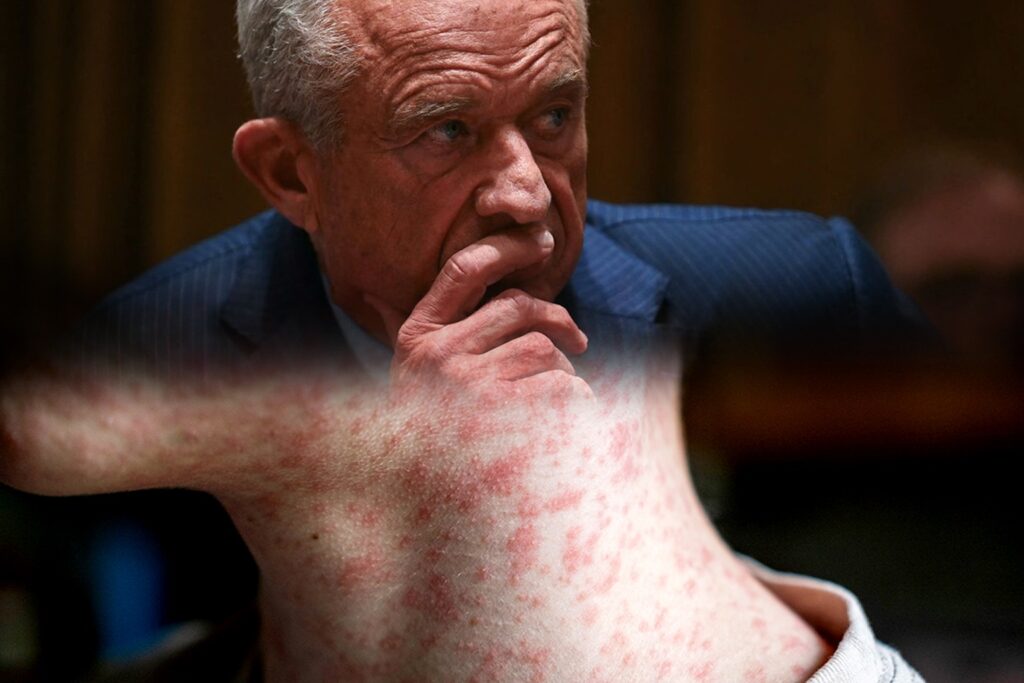
MMR Vaccine Crucially Important as Measles Epidemic Spreads American Territory
Particularly in Texas, where an outbreak has resulted in 146 confirmed cases since late January 2025, the United States is now seeing a worrisome rise in measles cases. With one school-aged child dying from the virus, the Texas Department of State Health Services (DSHS) has noted that the epidemic has mostly afflicted youngsters and is the first measles-related fatality in more than ten years.
When an infected individual coughs or sneezes, the very contagious measles virus travels by airborne droplets. Usually starting with high fever, coughing, runny nose, and red, watery eyes, first symptoms sometimes include a distinctive rash all over the body. Although most cases are mild, in young children, pregnant women, and immunocompromised people extremely severe consequences including pneumonia, encephalitis (brain inflammation), and even blindness can develop.
Historically, almost every youngster in the United States got the sickness before the measles vaccination became generally available in the 1960s. With a death rate of 1 in 1,205 cases, the nation averaged more than 500,000 measles cases year between 1953 and 1962. The MMR (measles, mumps, and rubella) vaccination helped the disease almost be eliminated in the United States; but, current vaccine hesitation and false information have helped it to resurange.
Texas near the Measles Outbreak’s Epicenter
Especially concerning has been the Texas epidemic. The DSHS reports that among the 146 confirmed cases, 116 include persons under the age of eighteen. Moreover, among these instances, 79 were those of people who had not gotten the MMR vaccination and 62 had unknown immunization history. Among individuals who had at least one dosage of the vaccination, only five verified cases were found.
The U.S. Department of Health and Human Services (HHS) has rallied resources in response to this disaster to support Texas health officials. Working closely with the Texas government, the Centers for Disease Control and Prevention (CDC) and the Administration for Strategic Preparedness and Response (ASPR) provide technical support, laboratory assistance, and vaccinations to help manage the outbreak. To stop more spread, health officials also underline the need of prompt vaccination.
Apart from the bereaved parents of the child who passed away from measles, HHS Secretary has personally visited Texas Governor Greg Abbott and guaranteed all government help. Health authorities underline still the vital part immunizations play in avoiding such tragedies.
Why is vaccination so important?
One of the most contagious diseases, measles is still best prevented with vaccination. Apart from safeguarding individuals, the MMR vaccination helps to create herd immunity, therefore guaranteeing the protection of people who cannot be vaccinated for medical reasons.
Recently revised instructions from the CDC advise doctors to treat Ebola patients with vitamin A as part of supportive therapy. Studies have found that, particularly in children with moderate to severe illnesses, vitamin A can greatly lower the mortality linked to measles. But since there isn’t a specific antiviral therapy for measles right now, vaccination’s significance is even more highlighted.
Parents are advised to see their doctors and make sure their children have the MMR vaccination at the advised times. Parents who decide to vaccinate not only safeguarding their own children but also helping to stop the outbreak of measles in their local areas.
Public Health Officials Demand Right Away Action
Declining vaccination rates and the threats of measles outbreaks still cause health professionals to issue warnings. Public health initiatives today center on teaching communities about the safety and efficacy of vaccines and addressing vaccine reluctance with data supported by science.
As instances of measles spread over several states, legislators and medical professionals are advocating aggressive steps to stop more death. Important first measures in stopping the development of this avoidable disease are ensuring simple access to vaccines, raising awareness, and pushing timely inoculation.
The comeback of measles reminds us very much of the need of immunizations. Public health professionals underline as the country struggles with this epidemic that the only way to stop more cases and shield populations from the terrible effects of vaccine-preventable diseases is thorough immunization.








